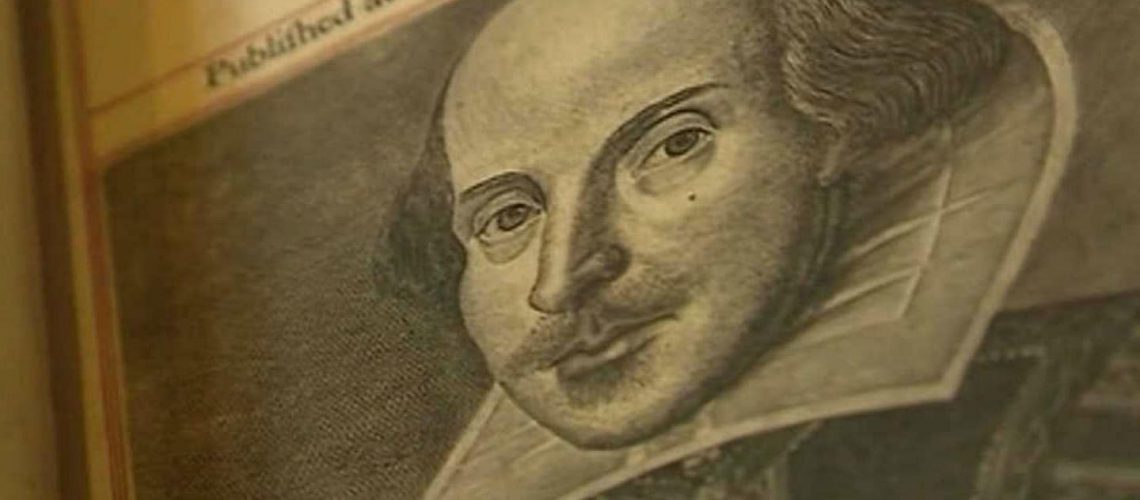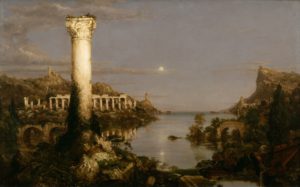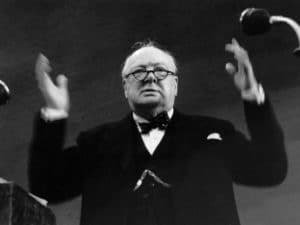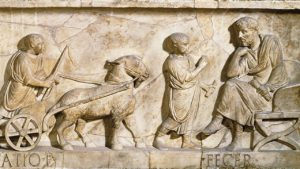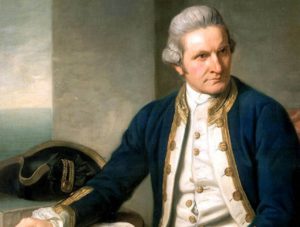Today is St. George’s Day. It is also Shakespeare’s birthday and, believe it or not, it is the day on which Shakespeare died. Apart from the astonishing coincidence that Shakespeare died on his own birthday, it is also singularly appropriate that England’s greatest poet should have been born and should have died on the feast day of her patron saint. It seems appropriate, therefore, that we should celebrate the 450th anniversary of Shakespeare’s birthday with a reference to cricket, that most quintessential of all English sports. Shakespeare is “450, Not Out”, continuing to hit his audiences for six after reaching several consecutive centuries of continuing relevance.
On such a prestigious anniversary it would do well to remind ourselves of the enduring stature of the Bard of Avon.
Arguably the three greatest writers of all time are Homer, Dante, and Shakespeare. Of the first of these, very little is known. Homer, it seems, has disappeared amidst the murk and mists of history. So great and wide is the chasm that separates him from us that he is almost invisible. What we know of him, for what it’s worth, is gleaned from allusive and elusive clues embedded in his work. Thus, for instance, it is widely presumed that, like Milton, he was blind. If so, like the blind seer Teiresias, he sees more in his blindness than those blinded by their own unwillingness to see.
Much more is known of Dante, a devout Catholic and a disciple of the scholasticism of Thomas Aquinas, who lived much of his life as a political exile from his beloved Florence. Perhaps the fact that he is a thousand years closer to us than Homer might explain the greater knowledge. If so, why is it that such mystery continues to surround the seemingly elusive figure of William Shakespeare? In terms of the time that has elapsed from his time to ours, it would seem reasonable to presume that we should know more about the Bard of Avon than about the divinely-inspired poet of Italy, the latter of whom lived three hundred years earlier.
Much of the mystery surrounding Shakespeare is linked to the age in which he lived. It was an age in which a large and alienated section of the population was considered outlaws by the state. In Elizabethan and Jacobean England it was a criminal offence to practice or propagate the Catholic religion, an offence that for priests was punishable by death. It is for this reason that England’s greatest poet remains largely unknown. He is unknown, first of all, because he sought to keep his religious life unknown, as far as possible, from the authorities. He is also unknown because later generations of Englishmen erected a myth in the nation’s likeness, ignoring or smothering the Bard’s “treacherous” popery in the interests of a nationally acceptable patriotic iconography. He became the posthumous victim of “patriotic correctness”.
The overwhelming evidence for the Bard’s Catholicism is rooted in the solid facts of his life and in the theological, philosophical and moral truths to be found in his work.
The factual evidence is to be found in documents, such as Shakespeare’s last will and testament and in the spiritual last will and testament of his father; in the persecution of Shakespeare family and friends for the practice of their faith; in court cases in which Shakespeare became embroiled; in property that he purchased; and in the sort of acquaintances and friends that he valued, and the type of people whom he considered enemies. All of these historical facts, pieced together meticulously by historians, paints a picture of Shakespeare’s life that points to his papist sympathies.
The textual evidence to be gleaned from his work includes thinly veiled and sympathetic allusions to the work of the Catholic poet and martyr, St. Robert Southwell, and a host of allegorical connections in his poetry and plays to the religious and political turmoil of the times in which he lived. At its deepest level of meaning, Shakespeare’s oeuvre can be seen as a dialectical engagement with the opposing forces of Christian orthodoxy and secular fundamentalism, with the Bard’s sympathies clearly falling on the side of the former against the latter.
One consequence of the emergence of the historically and textually verifiable Catholic Shakespeare is the construction of more acceptable “alternative” Shakespeares who can be made to dance obediently to the tune of the “religiously-correct” zeitgeist. Thus the dubious textual scholarship surrounding the “dark lady” of the sonnets was employed by Hollwood to depict an adulterous and hedonistic Bard in the travesty, Shakespeare in Love. More recently, the utterly absurd theory that Shakespeare’s plays were not written by the Bard but by Edward de Vere, the Earl of Oxford, has been resurrected by Hollywood. This so-called “Oxfordian theory”, which can be demolished with consummate ease with the merest modicum of historical scholarship, forms the basis of the more recent film, Anonymous.
The construction of bogus Shakespeares is an act of treason against the real Shakespeare, who is still being hounded by his enemies 450 years after his birth. In this context, the distortions and fabrications that have dogged the Bard throughout the centuries can be said to be held at bay by the true scholars who are the Bard’s true friends. Set against the baying hounds who have hounded him, the true scholars can be likened to bloodhounds who unearth the evidence that sets Shakespeare and his times free of the falsehood that has surrounded them. Against the dogs of deception and deconstruction, such scholars can be likened to the hounds of heaven. Switching analogies, and considering the significance of today’s date, we might also liken the Shakespeare-abusers to deceitful dragons who have been slain by the scholarly St. George. As Henry V might have said, “The game’s afoot; Follow your spirit: and upon this charge, Cry — God for Shakespeare! England and Saint George!”

Civilización y barbarie: Estados Modernos
No hay sociedad sin alguna forma de poder político. Si este falta, el grupo se disgrega y acaba desapareciendo. En nuestras sociedades modernas ese poder
